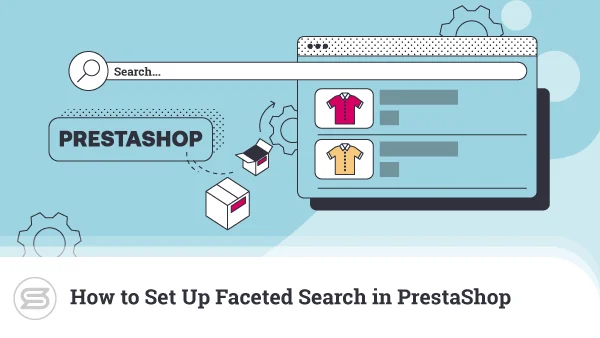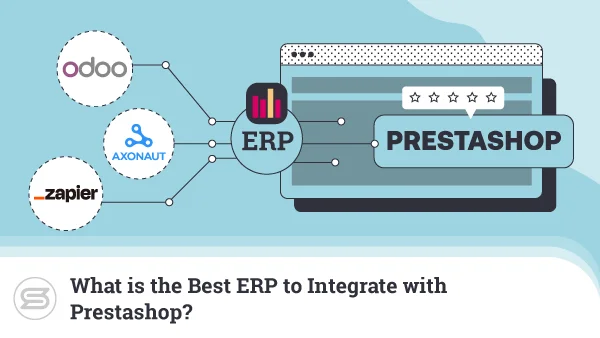What is Managed Magento Hosting and Why Choose it For Your Online Store
So, you successfully hosted and created your own online Magento (a.k.a Adobe Commerce) store. Things are going well, customers are loving it, and traffic is growing daily. Or maybe you’re still considering how exactly to enter the ecommerce world.
Honestly, it’s all fun and games until you’re balancing way too many things at once. You’ll need to monitor your server, manage your resources, grow your business, etc. Not impossible per se, but there is an easier way to tackle things.
Have you heard of managed hosting? It’s entering the scene to save the day.
To simplify, this is a service that enables you to take care of your business while a team of experts takes care of the hosting side of things. Sounds great, right?
In this article, we’ll discuss why you should choose managed hosting for your Magento store and all the benefits it brings to the table.
Introduction to Magento, Now Adobe Commerce
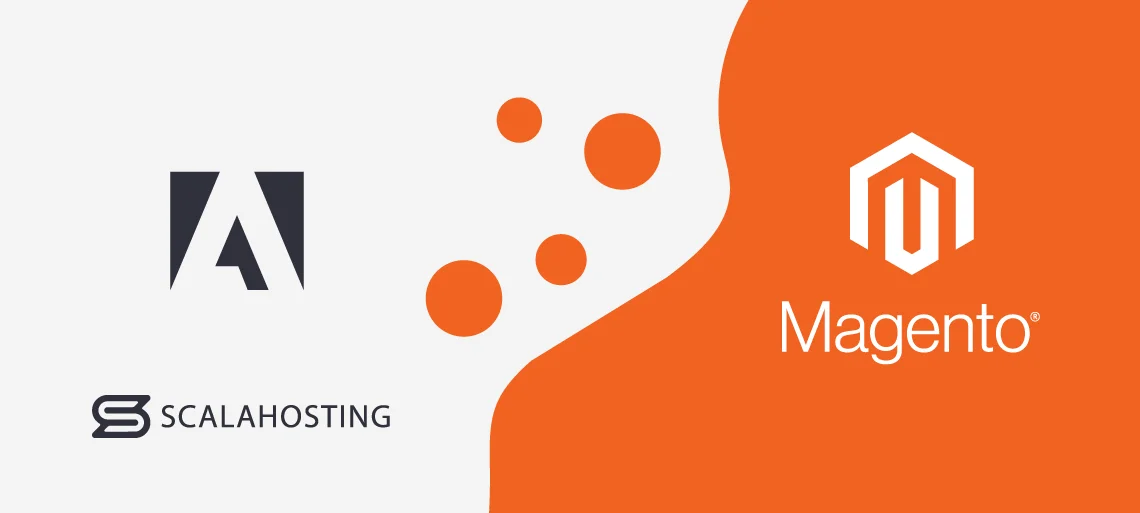
Magento Commerce is among the leading ecommerce platforms. It empowers businesses to provide top-notch online shopping experiences. Since 2018, Magento has become part of Adobe’s suite of digital experience solutions and has since adopted the name Adobe Commerce. It currently offers a comprehensive set of features and functionalities designed to meet the diverse needs of online retailers, from small businesses to enterprise-level brands.
Magento is highly customizable and scalable, allowing businesses to tailor online stores to their unique requirements. It also enables them to scale as they grow. In addition, it comes with various management tools to help you organize product catalogs with ease.
As for payment, Magento offers built-in security features and PCI compliance. You can rest assured that your customers’ transactions are safe and secure. If you need a special payment provider or any other feature, Magento integrates seamlessly with a wide range of third-party applications and services.
As you can see, the platform brings numerous benefits to the table. It can only get better if you add managed web hosting to the picture.
What is Managed Magento Hosting and Why You Need It
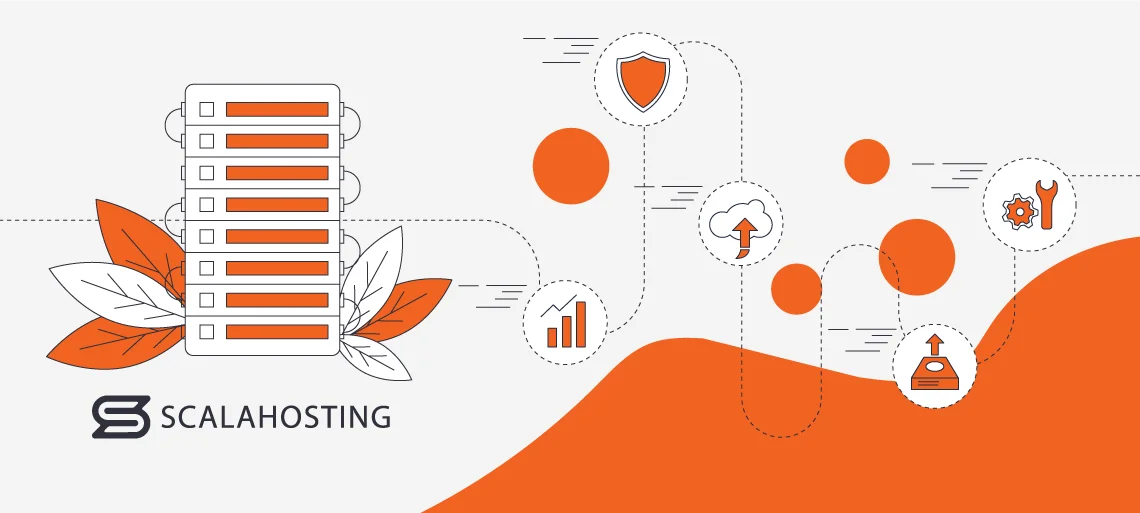
When you choose a managed hosting package, the provider takes care of the day-to-day management and maintenance of servers and infrastructure on your behalf.
This covers tasks such as:
- Server setup
- Configuration
- Security
- Monitoring
- Updates
- Backups
For you, this means you get a reliable, secure, and hassle-free hosting experience, which is exactly what you want when growing your business.


And that’s exactly why managed hosting solutions are your best bet for all your Magento projects. The advantages are numerous:
Comprehensive Server Management
Being able to outsource the server management tasks to your vendor is honestly a blessing. Hosting providers employ professionals with extensive expertise, so you know you’re in good hands.
Also, you don’t need to worry about making a mistake, which is possible when you self-host. The experts will ensure server settings are optimized for performance, security, and compatibility with Magento-specific apps.
You can also rely on them for timely server and software updates and patches. It minimizes security risks and potential downtime. The team will proactively identify and address potential issues before they impact your store’s availability. In addition, they will continuously monitor server performance, health, and resource utilization.
Regular updates aside, managed hosting offers various robust security measures to protect you against cyber threats, malware, and unauthorized access. Those include firewall configurations, attack detection systems, security audits, and more.
Performance Optimization
Managed hosting providers employ different techniques to optimize server configurations for the needs of your Magento store. This might include software such as web servers (e.g., Apache, Nginx), database types (e.g., MySQL, MariaDB), and PHP settings.
The team of experts will also keep an eye on our resource usage – think CPU, memory (RAM), and disk space. They monitor resource utilization and adjust allocations as needed to prevent resource bottlenecks and ensure smooth performance.
In addition, they employ techniques and tools to handle traffic spikes, such as:
- Caching – saving copies of website files in a temporary location so users can access them faster;
- CDN solutions – using servers located closer to users to deliver content, reducing latency;
- Load balancing – distributing server load evenly, which prevents individual servers from becoming overwhelmed
Scalability Assistance
Managed service providers offer comprehensive scalability assistance to support your Magento store growth. Their packages include flexible resource allocation options, allowing you to easily scale up or down based on your individual needs and traffic spikes. Such vendors also facilitate vertical scaling by upgrading server hardware components.
Hosting providers also have automated scaling policies. Those are based on predefined thresholds and triggers, such as CPU utilization, memory usage, and incoming traffic levels. When these are exceeded, automated scaling mechanisms provide additional resources or server instances to maintain optimal performance.
Some vendors also conduct predictive scalability planning based on historical traffic patterns, seasonal trends, and anticipated growth projections. Thanks to those, they can forecast your resource needs and proactively scale. Again, there’s nothing required of you except expanding your Magento business.
Automatic Backups and Recovery
Managed hosting providers offer regular automated backups of your website data and configurations. This means you get numerous recovery options in case of critical situations.
The dedicated team will schedule backups of your Magento store data, including databases, files, configurations, and other critical assets. These are performed at predefined intervals, such as daily or weekly, to ensure you’re protected against data loss.
Managed hosting providers also offer point-in-time recovery options that allow you to restore your Magento shop to a specific point in time. This ensures data consistency and integrity. Point-in-time recovery enables you to roll back changes and recover lost or corrupted data.
No matter the backup technique, you’ll have quick and efficient recovery options to restore your online store to a functional state. While you can rely on experts to do that for you, it’s a great idea to research and employ backup and disaster recovery strategies yourself.
Security Expertise
Managed hosting vendors implement robust security measures to safeguard the server environment and ensure the integrity and confidentiality of your Magento store data.
The dedicated team will monitor and protect your hosting environment against cyber threats, vulnerabilities, and security breaches. They employ various tools and techniques to detect and mitigate potential issues in real time. This includes monitoring network traffic, server logs, signs of unauthorized access, malicious activities, and more.
When you choose managed hosting, you can count on your vendor to configure firewalls that filter incoming and outgoing network traffic. They act as a barrier between your Magento shop and the internet, blocking unauthorized access attempts and common attack vectors, such as DDoS attacks.
Your provider will also ensure compliance with industry security standards and regulations, such as PCI DSS (Payment Card Industry Data Security Standard) and GDPR (General Data Protection Regulation). They implement security controls and measures to protect sensitive information, maintain data privacy, and comply with regulatory requirements – a must for ecommerce stores.
Managed SSL Certificates
An SSL (Secure Sockets Layer) certificate encrypts data transmitted between a web server and a user’s web browser. It ensures that sensitive information such as passwords, credit card details, and personal data is shared securely over the Internet.
Most managed hosting providers offer SSL certificates as part of their packages. The support takes care of the configuration and renewal processes. SSL certificates have a validity period, typically ranging from one to three years. Your vendor can set up renewals to happen automatically.
By choosing managed hosting, you can be sure your Magento stores will benefit from secure data transmission through encrypted connections. This is vital for maintaining the confidentiality and integrity of sensitive customer information and enhancing trust and credibility.
Managed Updates
Keeping your Magento store up-to-date with the latest security patches and updates is essential. However, this can take up a lot of your time.
That’s why you need managed hosting.
Your provider will make sure that your store is always running on the latest and most secure version of the Magento software. Such upgrades may include new features, performance improvements, bug fixes, and security enhancements. All of those contribute to the overall stability and security of your store.
Vendors usually automate the whole process. This includes scheduling update installations during off-peak hours to minimize disruptions to your Magento store operations. They will also test the environment to see if all is working properly. It’s to make sure that updates are compatible with your store configuration, themes, extensions, and customizations.
In addition, you’ll get regular notifications and reports about the updates. This includes the status of installed updates, any issues encountered during the process, and actions taken to address them.
Server Performance Analysis, Monitoring, and Alerts
Managed hosting providers offer comprehensive server performance analysis, monitoring, and alerts services. They provide insights into your server usage, traffic patterns, etc. This helps you spot and address potential issues before they impact your Magento store. You will receive detailed reports about your resource utilization, too.
They will include metrics such as:
- CPU usage
- memory usage
- disk space
- network bandwidth
- website traffic
- page load times
Performance analytics help identify trends, anomalies, and areas for optimization to improve the overall performance of your ecommerce store. You’ll be able to pinpoint resource-intensive processes and bottlenecks. That enables you to optimize resource allocation and improve server efficiency.
Your vendor can also set alerts and notifications to let administrators know of potential issues before they impact the store. This includes defining thresholds and triggers for key performance metrics.
The support team can then help you with optimizing server configurations, caching mechanisms, database queries, and website assets to improve overall responsiveness.
Optimized Infrastructure
One vital thing that the dedicated team can do is tailor your server specifically for Magento. Reputable hosting providers will offer optimized infrastructure services designed to support the unique requirements of such ecommerce stores. This includes hardware and software configurations for high-traffic volumes, database transactions, and concurrent user sessions.
Your vendor will also be responsible for configuring software components, including web and database servers, plus caching mechanisms, for optimal performance. This includes fine-tuning server settings, optimizing caching mechanisms, and configuring database parameters to enhance the speed and responsiveness of your Magento store.
Once this is done, the dedicated team will conduct performance testing and optimization to identify performance issues. This includes load and stress testing and performance profiling to ensure the infrastructure can deliver the best results under various conditions.
Your vendor will also continuously monitor server metrics, resource utilization, and website performance indicators. The team will make adjustments as needed to maintain optimal performance and reliability.
Load Balancing and Traffic Management
Load balancing is a strategy for distributing incoming requests (like website visits) across multiple servers. It helps spread the workload evenly, prevents any single server from getting overwhelmed, and ensures faster response times for users accessing websites or online services. Load balancing is crucial for Magento stores, especially during peak periods.
Managed hosting providers implement load balancing and traffic management solutions to handle traffic spikes, and ensure high availability. They often deploy solutions like hardware load balancers or software-based options like NGINX or HAProxy. Those tools dynamically scale resources by adding additional server instances to handle the increased load, ensuring responsiveness.
Such solutions can decrypt encrypted SSL traffic at the load balancer level before forwarding it to backend servers. This offloads SSL decryption from backend servers, improving performance and reducing server overhead. Don’t worry, though – the data transmitted between the client and the load balancer is still safe.
In addition, such solutions perform health checks and monitor the availability and responsiveness of backend servers. If one becomes unresponsive or fails the checks – the load balancer automatically removes it from the pool of active servers. It then redistributes traffic to healthy ones to maintain availability.
Content Delivery Network (CDN) Integration
A Content Delivery Network (CDN) comprises servers strategically distributed across various geographic locations worldwide. The primary purpose is to deliver web content, such as images, videos, CSS, and JavaScript files, to users more quickly.
Managed hosting providers can assist store owners in integrating CDN services with their websites. This involves configuring DNS settings to route traffic through the CDN and setting up configurations to ensure seamless integration with the Magento platform. It also includes specifying caching policies, configuring content compression, defining rules for content delivery, and more. No better way to reduce latency and improve page load times for Magento stores globally.
Some managed hosting providers monitor CDN performance metrics, such as cache hit ratios, response times, and bandwidth usage. It helps them evaluate the effectiveness of the integration and optimize configurations for improved performance. This helps ensure that Magento stores benefit from the full potential of CDN services.
Scalable Storage Solutions
Managed hosting enables you to spend all your time growing your business. In the best-case scenario – at some point, you’ll be flooded with traffic.
Getting access to scalable storage solutions and efficient management of resources can save you a lot of trouble when that happens. This can include cloud storage, network-attached storage (NAS), and storage area networks (SAN). Those can be easily expanded as your disk space needs increase over time.
You will need to choose a vendor that offers flexibility with your resources. It ensures that your Magento store can incorporate product catalogs, customer data, order information, etc. You will also be paying for what you’re actually using, meaning there is no need to overspend unnecessarily.
Cost-Effective Management
Who doesn’t love cost-effective solutions?
It’s exactly what you get when you choose managed hosting. The packages include a range of expert services that can streamline operations, enhance performance, and improve security. You can rely on your vendor for server management, performance optimization, security expertise, 24/7 technical support, and more.
Getting it all in one plan is definitely more cost-effective than hiring and maintaining an in-house IT team to handle these tasks. Magento store owners can save on hiring, training, and payroll expenses associated with an in-house team.
Managed hosting packages usually feature monthly or annual fees. These enable you to forecast your budget accurately. If you decide to self-host, you will need to take variable expenses into consideration. Think about hardware upgrades, software licenses, and infrastructure maintenance.
In addition, managed hosting solutions allow you to be flexible with your resources. You’ll avoid unnecessary fees and overspending, and your store will always run smoothly.
24/7 Technical Support
Hosting providers offer prompt assistance in resolving issues and addressing technical queries for Magento stores. This includes providing immediate responses to support tickets, live chat inquiries, and phone calls to ensure the timely resolution of issues.
Managed hosting, on the other hand, means you get a dedicated team of experts who will handle the technicalities of your server. You’ll get specialized support for Magento-specific issues and configurations. In addition, reputable providers offer customized solutions and recommendations to address the unique challenges and requirements of your online shop.
Tech support engineers are often equipped with advanced diagnostic tools and methodologies to identify and resolve problems quickly. This ensures minimal downtime, if any, and the smooth operation of Magento stores.
The dedicated team will monitor the health and security of your server. They will install firewalls, integrate encryption features, employ role-based access controls, and more. You can rest assured that your store, customer data, and payment transactions are all in good hands.
Managed VPS with ScalaHosting
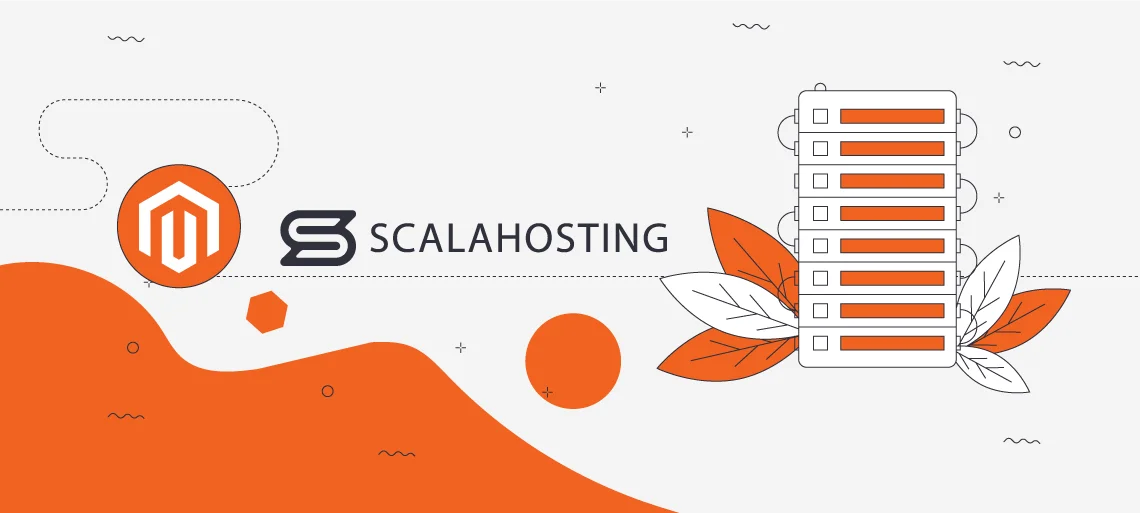
Growing your Magento store can be a breeze with ScalaHosting’s Managed VPS plans. They are created to handle content-rich websites – which is exactly what a Magento project is. Our packages are scalable and customizable, and you can tailor them to fit your store requirements.
We know that speed is essential, especially in the ecommerce world. That’s why we utilize the latest virtualization technologies. Thanks to that, our servers are fast and dependable. Your store will benefit greatly from OpenLiteSpeed – your website will be lightning-fast.
Our plans also include the option to use CDNs. We have ensured full compatibility with all popular platforms – Cloudflare, StackPath, KeyCDN, Sucuri, Akamai, etc. You name it – our team of experts will integrate it for you.
All managed VPS packages come with the in-house developed web hosting control panel SPanel. It will enable you to check unique visitors per day, visitor hostnames and IPs, geolocations, and more. That way, you can monitor traffic trends and user behavior, which will help you predict eventual spikes.
At ScalaHosting, we have also developed our own AI-powered security tool. It’s called SShield, and it blocks 99.998% of web attacks online before they become a threat to your Magento store. Your store will be safe, and so will your customer data.
And, of course, the cherry on top:
We know that the support team is the heart of any managed hosting package. Our experts are trained to help you with all your web hosting worries. They will also perform daily offsite backups so that you can restore your data in case of any issues. The ScalaHosting support team is available 24/7 via chat and email.
Contact us today – we’d love to help your Magento store grow.
Wrap Up
Choosing managed hosting for your Magento store offers a myriad of benefits. A team of experts will take the wheel to handle comprehensive server management, performance optimization, security enhancements, and more. That leaves you, the store owner, with the most important task at hand – growing your business.
That’s right, you won’t have to worry about the technical intricacies of VPS hosting. This doesn’t mean you won’t have any control over it, though. Quite the contrary, you’re free to customize your environment whenever you see fit.
From where we’re standing, that seems like a win/win situation!
FAQ
Q: Can Magento run on shared hosting?
A: Yes, Magento can technically run on shared hosting. However, we don’t recommend it for several reasons. Shared hosting environments typically host multiple websites on the same server and share resources such as CPU, memory, and bandwidth among them. This can result in many performance issues for your store. Also, this affects the overall safety of your project.
A security breach or vulnerability in one website can potentially affect others hosted on the same server. At the end of the day, managing an online shop is all about getting more clients, and a shared hosting account will quickly become insufficient, even with just a few visits.
Q: What is managed Magento hosting?
A: Managed Magento hosting is a web service that enables users to focus on growing their business while a team of professionals handles their server. The support team takes care of configurations, updates, security, performance optimizations, etc. Managed hosting is suitable for all types of projects and is especially beneficial for ecommerce ones.
Q: What is Magento called now?
A: Magento is now called Adobe Commerce. The ecommerce platform was acquired by Adobe on 21 August 2018. Since then, the mother company has rebranded the suite of ecommerce products under the name “Adobe Commerce”. However, most users still refer to it by its old name.

